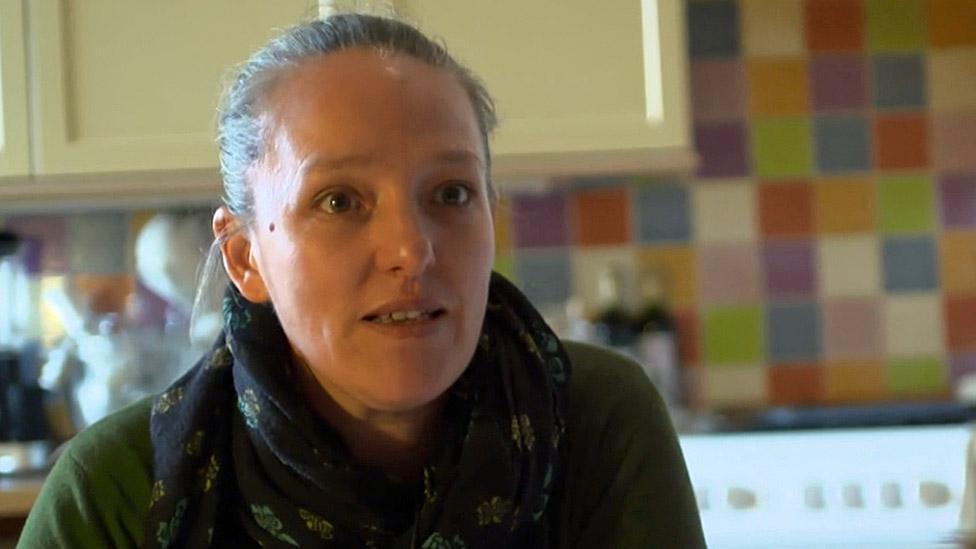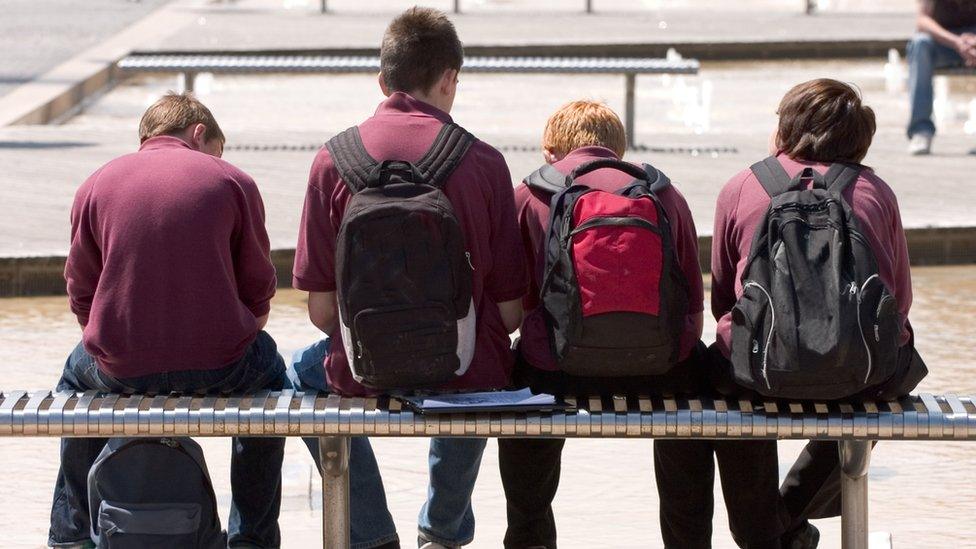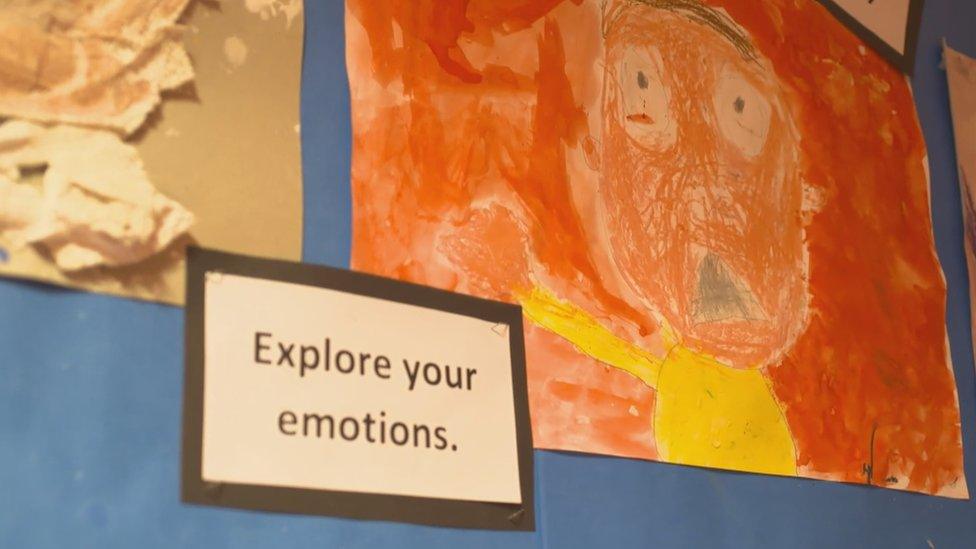'My child refused to go to school'
- Published

Emma O'Connor never found out exactly why her son refused to go to school
At first Emma O'Connor's nine-year-old son pretended to be ill to avoid going to school but his anxiety soon became so great he refused to go altogether.
School refusal is recognised by psychologists as a disorder in which a child will not attend school for fear of bringing on the physical and mental symptoms of extreme anxiety.
Clinical psychologist Dr Fiona Wilson told BBC Scotland's The Nine it was different to truancy, which is usually done in secret, and was more like a "phobia of school".
Dr Wilson says: "These children are saying 'I want to be there but I can't'. The majority of school refusing children actually like school. They are bright and intelligent."
Emma, from Edinburgh, says this was the case with her son, who she did not want to be named or interviewed as part of this report.
She said that it was as he entered primary five that she began to struggle to get him to go to school.
He would feign illness and make any excuse he could to avoid going.

School refusal is different to truancy
Emma says the problem got "progressively worse" and claims the school offered little support, preferring instead to punish non-attendance.
"He couldn't tell me what was wrong," she says.
She battled for months to get him to go to school but the whole episode left her "mentally drained" and did not appear to be helping her son.
"I was a bit shocked and reeling from it all and did not know what to do," Emma says.
"Eventually we decided not to force him to go anymore and gave him a bit of time off.
"In the end we were unofficially home educating without any preparation or knowing what we were doing."
We, as mental health professionals, know it is a big issue but I don't think out there in the public it is really spoken about
When she took her son out of school, Emma expected a visit from the authorities but none came.
It was only after she inquired that she got an official letter and an education welfare officer was brought in.
"I think they just didn't know what to do which is a shame because they should have," Emma says.

Her son stayed off school from the Christmas break and did not return until the new academic year in August, when his mother had found him a new school.
She says finding a new school which supported his reintroduction was "really important".
Emma worked with the deputy head teacher on strategies for dealing with his anxiety issues and eventually he began to feel more confident.
Emma says he has never really been able to articulate what made him so anxious but she believes it may have started with the behaviour of particular teacher.
She says she worked hard to equip him with the resilience skills to deal with his difficulties and he is now a "normal 13-year-old guy who hates school exactly the same amount as other kids".
According to Emma, talking about her own experiences has led her to discover that school refusal is "a hidden problem".
She says the children affected are not getting support because the problem is not being properly recorded.

BBC Scotland's The Nine asked all Scotland's 32 local authorities for figures on the number of pupils they have recorded as "school refusal" in the past four years.
Most said it was not a term they used and only two councils were able to provide figures - Midlothian and Inverclyde.
Midlothian Council told the BBC it was currently analysing the data to better understand why there had been an increase in the number of children and young people who are school refusers.
Inverclyde Council claimed its figures showed that school refusal was "not a significant issue".
Clinical psychologist Dr Wilson, from The Edinburgh Practice, a private mental health clinic, said: "We, as mental health professionals, know it is a big issue but I don't think out there in the public it is really spoken about.
"A lot of parents feel quite isolated about this. They think they are the only family going through this.
"Actually the reality is that at their child's school there are probably a number of families experiencing it."
Dr Wilson said it would help tackle the problem if schools recorded the prevalence rates.
She said: "If we could get those figures nationally it would highlight how big an issue it is."
A Scottish government spokesman said: "We aim to promote good attendance at school and are clear that absence from school, whatever the cause, disrupts learning. It is therefore vital schools do all they can to promote good attendance."